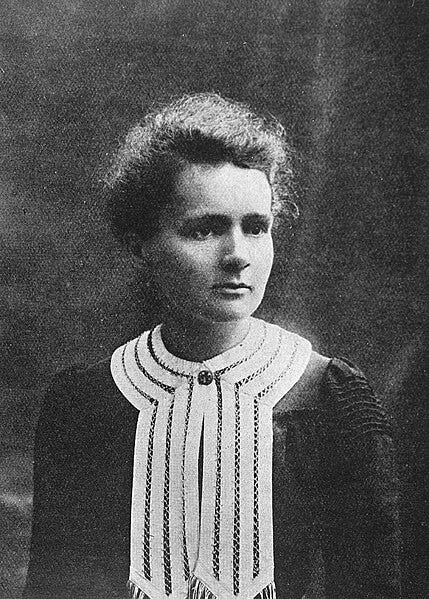Most people think fear is something to conquer. They treat it like an enemy to be crushed, an obstacle to be obliterated. But fear isn’t the real problem. The real problem is not knowing. Fear thrives in the unknown, in the dark corners of our ignorance. The moment we shine a light on what scares us—by learning, by understanding—it loses its power. Marie Curie nailed it: “Nothing in life is to be feared, it is only to be understood. Now is the time to understand more, so that we may fear less.”1 And if we take that seriously, it changes everything.

If you’ve read many of the articles here in Reboot & Rise, you’ll know that I love a quote!
I came across this one in the marvellous weekly newsletter called ‘The Marginalian’ (previously known as ‘Brain Pickings’) by Maria Popova, and it really spoke to me.
I’m something of a passionate lifelong learner.
For as long as I can remember I’ve lived with a sense of curiosity burning in my chest, and I’m sure that’s at least part of what drew me to a career in software development, that need to learn how to solve problems, to fix issues, and to make the world (or the piece of software or website I was working on) a slightly better place.
It’s also what I think is responsible for my obsession with reading. I was an avid reader from an early age, and in my mid twenties, it led into a passion for reading self help books.
In 2018, I had the idea, like a bolt out of the blue, for the book which became The Bad Habit Kicker, which I published in 2019.
My life, sadly, was not transformed overnight when I pressed ‘publish’ on Amazon KDP. It continued much as it had been, in an apparently settled romantic relationship living in Leeds, working as a programmer, and then as a mid-level manager.
But I was yearning for more, and so after a painful breakup, and a year of contemplation in my own little house, Reboot & Rise was born.
I’d spent the intervening time working on myself, using the many things I’d learned through my obsessive reading in the fields of self-help, neuroscience and brain-based learning, and I figured that if these little tricks and tips were working for me, helping me to work with and around my own brain and my own issues, then they’d work for other people.
The more I wrote and shared, the more I experimented and tried things out on myself, the more I realised that Marie Curie’s quote above is absolutely spot on.
We all struggle, you see, to navigate our way through this life. While in many ways life in the 21st Century is easier than life has been for any of our ancestors throughout history, that doesn’t mean it’s a walk in the park. We have our own issues to deal with, such as social isolation, brought on by the Internet, remote working and of course the pandemic.
We’re often hit by things which our rational minds know is nothing to be concerned about, but that our prehistoric brains fly into an absolute panic over - a shitty comment online, a snide comment from a co-worker - convinced that this is going to be the thing that will kill us.
And if we’re not dealing with that kind of issue, then we’re battling our own grey matter.
We’ve only evolved so far, you see. While there’s a part of our brain, a higher-order section, which is telling us to do extraordinary things, to push the boundaries of our human experience, there’s still that animalistic part, unchanged since we lived in caves, which is risk averse and utterly sure that everything is a threat.
Then when you throw neurodiversity into the mix, it’s a potential melting pot of angst and pain.
It’s a frustrating experience, not only being stymied by our own brains, but assuming that this means that they’re somehow broken, that there’s something horribly wrong with us.
Through my writing and life-coaching with clients, I’ve come to realise that not only is there nothing actually wrong with most peoples’ brains, but by learning as much as we can about neuroscience, and psychology, we can do ourselves a massive favour and remove a large part of the frustration and guilt which we take upon ourselves when we think that we’re defective in some way.
So, yeah. I agree with Marie Curie. The more we learn, the more we know and the more we understand about ourselves, the less we have to fear, and the more we can accept our very human quirks and foibles, and get the heck on with our lives, dealing with the real issues, rather than the ones we put upon ourselves through a lack of understanding.
So, here’s the takeaway: You’re not broken. Your brain isn’t defective. It’s just working with outdated software, wired for survival in a world that no longer exists. But you don’t have to be at its mercy. The more you learn—about yourself, about neuroscience, about the sneaky ways fear hijacks your thinking—the more control you reclaim. You stop fearing fear itself. You stop fighting yourself. And you start living.
If you found this article helpful, why not subscribe to Reboot & Rise for more actionable strategies to design your best life? Let’s build a new life together!




